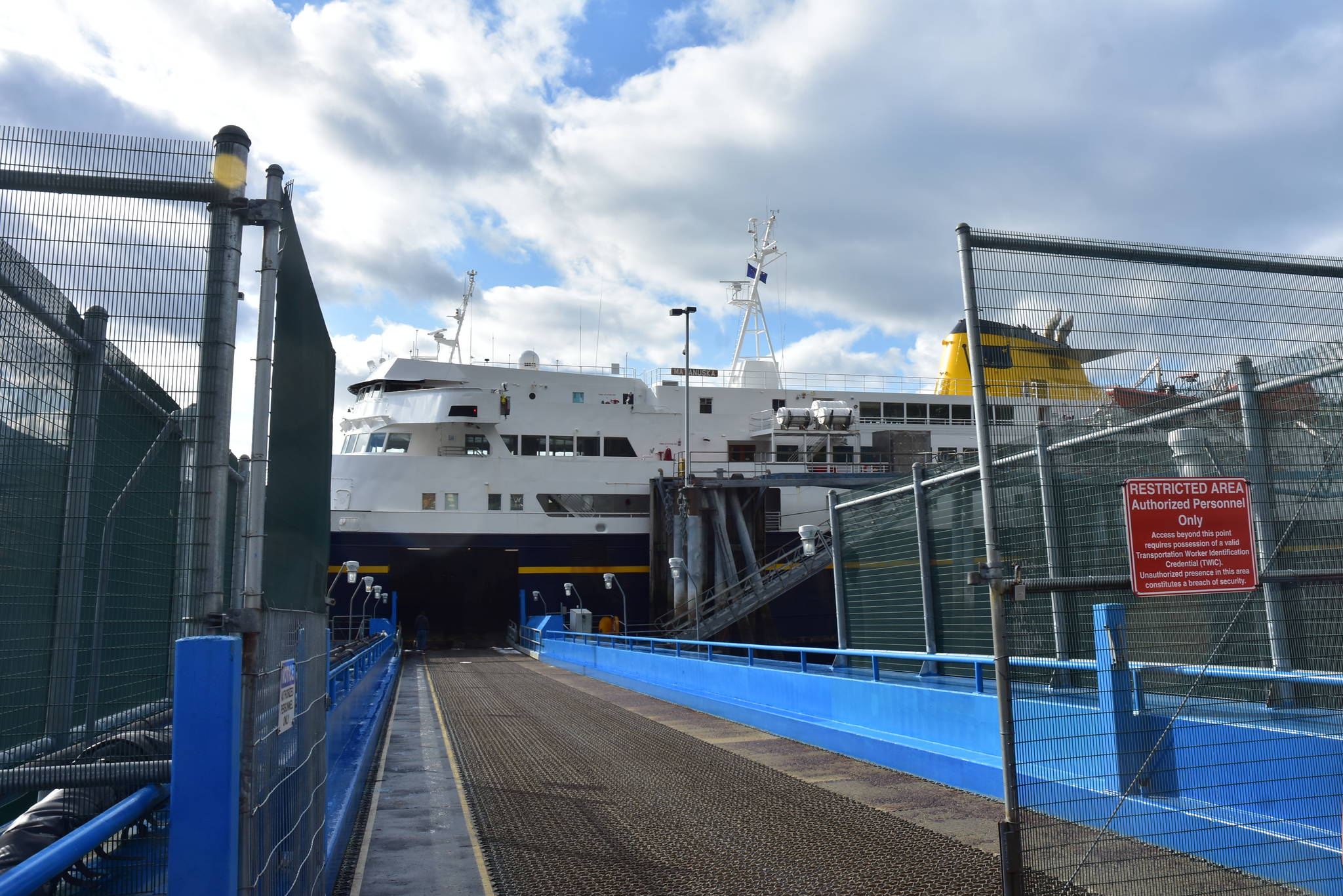A bill that would reshape leadership for the Alaska Marine Highway System took a crucial step toward becoming a law on Thursday. But not before debate over whether the ferry system that connects coastal communities constitutes a highway.
A bill to rework AMHS governance from House Speaker Louise Stutes, R-Kodiak, was advanced out of the House Transportation Committee Thursday afternoon, but not before a debate over whether the ferry system actually constitutes a highway. An amendment from Rep. Kevin McCabe, R-Big Lake, to change the word “highway” to “transportation” in the name of the governance board, which more accurately described the board, he said.
[Governor’s new bill would change long-term planning for state’s ferry system]
Stutes and Democratic lawmakers on the committee balked, insisting the ferries are an integral part of the state’s highway system. The marine highway is the only state highway people are expected to pay a fee to use, Stutes said, and is intended to connect coastal communities.
“Don’t know where to start to say that I disagree,” Stutes said.
Ferry supporters often mention the state’s ferries are part of the highway system when advocating for its funding.
McCabe defended his amendment saying the name change could open the purview of the governance board to areas beyond ferries. But he pushed back against referring to the ferry system as a highway, saying the mere fact AMHS consisted of boats prevented it from being a highway.
“It’s not a highway in the classic sense of the word,” McCabe said. “What roads are there in Tenakee (Springs)? I’m not sure that actually fits into the highway definition.”
McCabe also moved an amendment that would have prevented active or retired union members from serving on the governance board. That would prevent “stacking” the board with union officials, McCabe said, something he said he’d seen happen on the Alaska Police Standards Council.
McCabe’s Republican colleague on the committee, Rep. Mike Cronk, R-Tok, voted for all of McCabe’s amendments. A third Republican on the committee, Rep. Tom McKay, R-Anchorage, was absent from the meeting. When she announced she would be caucusing with Democrats and independents as she did the previous session, Stutes cited the caucus’ ongoing support for the ferry system as a major reason.
Last year, Gov. Mike Dunleavy commissioned a workgroup to draft recommendations for better management of the ferry system, and has submitted a bill based on the group’s findings. Though many of those suggestions received a cool reception from ferry stakeholders, there’s widely held agreement on the need for long-term planning away from year-to-year budget and policy battles. The ferry’s stakeholders have said they’re willing to work toward change.
The governor introduced a bill reshaping the current body overseeing the ferry, the Marine Transportation Advisory Board, into an Alaska Marine Highway Operations and Planning Board, which would give the system’s leadership more flexibility. The governor’s office said many provisions within the bill were drawn from the work group’s recommendation. Stute’s has a similar that’s been co-sponsored by several Southeast Alaska lawmakers including Rep. Sara Hannan, D-Juneau.
Under the governor’s version, Stutes said, only the governor would appoint members of members of the governance board, which she found unacceptable. Her bill would allow appointments from various groups including both bodies of the Legislature, she said, adding she had spoken to the governor about reconciling the bills.
[Lack of planning hampers AMHS, lawmakers say]
In that same meeting, Department of Transportation and Public Facilities officials began a presentation on AMHS and how the department is working to implement findings from the reshaping workgroup. Deputy Commissioner Rob Carpenter updated lawmakers on repairs to the MV Tustemina and the designing process for new crew quarters on Alaska-class ferries. The presentation was truncated, as the meeting ran short on time.
Carpenter will resume his presentation to the committee on Saturday, where McCabe asked him to provide information on recent lapses in service and private contracting as an alternative. The committee’s chair Rep. Grier Hopkins, D-Fairbanks, said the committee would take those issues up on the weekend.
“It probably has a lot to do with the reshaping committee and those issues we talked about in (Stutes’ bill),” Hopkins said.
• Contact reporter Peter Segall at psegall@juneauempire.com. Follow him on Twitter at @SegallJnuEmpire.

